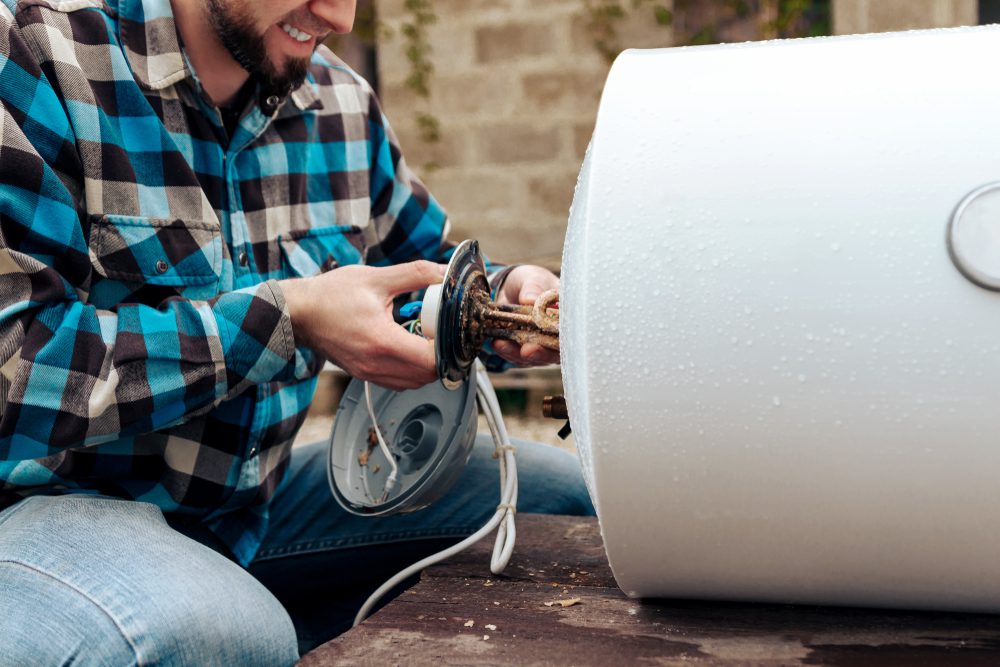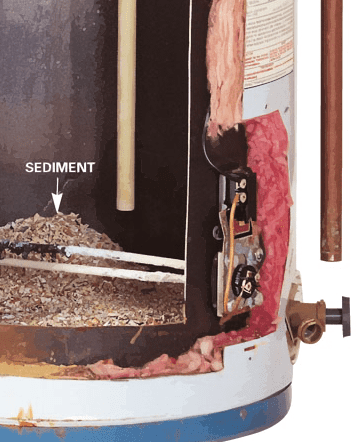How to Address the Most Common Heater Urgent Issues
How to Address the Most Common Heater Urgent Issues
Blog Article
This post which follows relating to Warning Signs You Need Water Heater Repairs is without a doubt remarkable. Read on and make your own ideas.

A water heater is one of one of the most essential standard home appliances that can be found in a house. With water heaters, you don't require to experience the tension of home heating water by hand whenever there is a demand to wash, wash, or the dishes. There is always an opportunity that your water heater would act up as with most mechanical gadgets.
It is essential to keep in mind any kind of little malfunction as well as tackle it quickly before points get out of hand. Many times, your hot water heater starts to malfunction when there is an accumulation of sediments as a result of continuous usage. As a precaution, routine flushing of your hot water heater is advised to stop debris build-up as well as prevent functional failing.
Common hot water heater emergency situations as well as how to manage them
Insufficient hot water
It might be that the water heating unit can not support the warm water need for your apartment. You can update your water heating system to one with a larger ability.
Varying water temperature.
Your hot water heater could begin producing water of different temperatures normally ice scalding or cold hot. In this circumstance, the first thing you do is to make sure that the temperature level is readied to the desired degree. If after doing this, the water temperature keeps altering throughout showers or other activities, you might have a malfunctioning thermostat. There might be a need to replace either the heating or the thermostat system of your hot water heater.
Leaking water heater tank.
A leaking tank could be an indicator of deterioration. It can create damage to the flooring, wall as well as electrical tools around it. You could also be at risk of having your home flooded. In this circumstance, you ought to switch off your hot water heater, allow it to cool, as well as meticulously look for the source of the issue. Sometimes, all you need to do is to tighten a few screws or pipeline links in cases of minor leakages. If this doesn't function and also the leak continues, you might require to use the services of a service technician for an appropriate substitute.
Discolored or smelly water
You require to understand if the issue is from the water or the storage tank source when this occurs. If there is no funny smell when you run cold water, after that you are particular that it is your water heater that is faulty. The smelly water can be triggered by corrosion or the build-up of microorganisms or sediments in the hot water heater container. You can try flushing out your container or changing the anode if the problem persists once you see this. The function of the anode is to clean microorganisms from your storage tank. Considering that the anode rod replacement calls for an extensive expertise of your water heater, you will certainly require the assistance of an expert.
Final thought
Some homeowners neglect little warning as well as minor faults in their hot water heater system. This only brings about further damage and also a feasible complete failure of your device. You need to deal with your water heater faults as soon as they come up to stay clear of even more costs and also unneeded emergency troubles.
With water heating units, you do not require to go through the stress of home heating water by hand every time there is a need to take a bathroom, do the washing, or the dishes. It might be that the water heating system can not sustain the hot water need for your house. Your water heating unit might start creating water of various temperature levels typically ice scalding or cool warm. If there is no funny scent when you run cold water, then you are particular that it is your water heating unit that is defective. The stinky water can be caused by corrosion or the accumulation of bacteria or debris in the water heating unit container.
Water Heater Burst: Why This Happens And What To Do Next
Water Heater Explosion Warning Signs
Since storage water heaters are made of metal and store large volumes of heated water, they carry an increased risk of leaking or even exploding as they begin to rust at the fittings and seams over time. If the thermostat controlling the water temperature within the tank is faulty, or if mineral buildup inside the water heater prevents the thermostat from sensing the water’s temperature correctly, the water could become overheated. This will expand its volume within the tank, causing it to press at the tank’s fittings and seams. If these fittings and seams are rusted or corroded, the pressure could result in a leak or even an explosion.
Here are some risk factors and warning signs of an increased risk of water heater leak or explosion:
Your water heater is more than 10 years old. Your water heater makes clanking, banging or rumbling noises as it heats up, indicating that sediment has built up and hardened inside the tank. There is visible rust on the outside of the water heater, especially located at the pipe fittings or the seams that run down the tank. There is rusty water coming from your water heater, indicating that there may be rust building up inside. Your water heater is leaking, which could indicate either a crack somewhere in the tank or a malfunctioning temperature-and-pressure (T&P) relief valve. What To Do When Water Heater Leaks
If you find water dripping or seeping out of your water heater, or pooling around it, it means your water heater is leaking. If you find a leak, it may be best to call a plumbing professional to diagnose the problem and determine how best to handle it. If you choose to tackle it on your own, there are a few things you can do.
TURN OFF THE POWER
Next, shut off the power to the hot water tank at your home’s electrical breaker box. If you don’t shut off the power, the heating elements within the tank could continue to stay hot, which could pose a fire risk.
If you have a gas-powered water heater, you’ll also need to shut off the gas line leading into the tank.
FIND THE LEAK
Now it’s time to determine where the leak is coming from. Likely locations are the T&P valve, the drain valve or one of the pipes or fittings that feed into the top of the tank. If you see any rust or corrosion on the outside of your water heater’s tank, pipes or fittings, these could also be the source of the leak.
REPAIR THE LEAK
Once you determine the source of your water heater leak, you’ll have a better idea of what steps you need to take to fix the problem. It may be a simple fix—such as using a wrench to tighten fittings or replacing the T&P valve—but it may be something more complicated. You may even need to drain the tank, remove the water heater and install a new one.
https://www.abchomeandcommercial.com/blog/water-heater-burst/

I recently found that page on Common Hot Water Heater Problems when looking around the internet. Sharing is good. Helping people is fun. Thanks for going through it.
At This Website Report this page